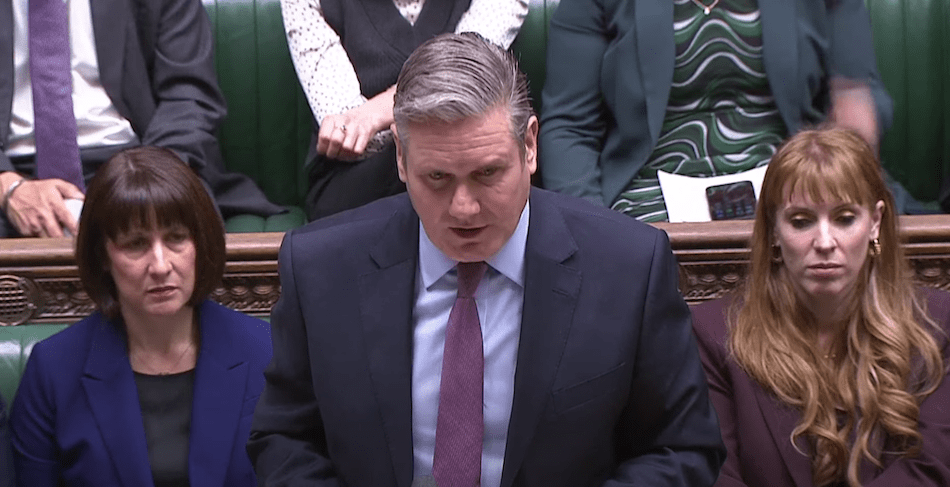Keir Starmer decided to fill the space at today’s pre-Autumn Statement Prime Minister’s Questions with a focus on a missing pledge from Rishi Sunak. He pointed out that the five new pledges the Prime Minister announced this week missed one on the NHS, and asked why. Sunak replied that ‘just weeks after’ he became prime minister, he ‘injected record funding’ into social care and unveiled the first ever long-term workforce plan in the NHS’s 75 year history. He didn’t explain why a pledge on the health service was missing, instead preferring to skip to the ones he had met on the economy.
Starmer told the chamber that the reason Sunak had dropped the NHS from his priorities was the size of the waiting list: now 7.8 million. ‘If a labourer or care worker is forced to wait a year for an operation, how are they meant to grow the economy?’ Sunak insisted that the government was ‘doing an enormous amount’, but then skipped over to Wales and the Labour-run health service that conveniently offers an attractive contrast with anything going on in NHS England. Starmer retorted, again citing Wales: ‘Mr Speaker, more than double the entire population of Wales are currently on a waiting list in England. He needs to take some responsibility.’ He then asked how many people were waiting for mental health treatment, a fact that will become more relevant given the benefit reforms being unveiled today. Sunak didn’t give the number, so Starmer did, and then narrowed the focus onto children’s mental health.
The exchanges became even more familiar, with Starmer suggesting the Prime Minister didn’t know what it was like to be on a lengthy NHS waiting list, and Sunak pointing out the number of times the Labour leader has changed his mind on patient choice and the use of the independent sector. In his final answer, the Prime Minister quoted a Labour criticism of the last Labour government for having a ‘disastrous failure of workforce planning’, and claimed this government would be the one to ensure there were enough healthcare workers.
The hostage deal between Israel and Hamas came up a number of times in the rest of the session, including from Stephen Flynn, who pressed Sunak on when Palestinian statehood would be recognised. Sunak said: ‘Our longstanding position is that we would recognise the state of Palestine when it best serves the objectives of peace.’
These sessions are never designed to make the political weather, but they do put down markers, and today we saw how the two parties plan to fight the next election: Sunak wants to talk about economic green shoots and persuade voters to give him his first full term to finish the repair job he took on last year. Starmer wants to point to the failure of public services, including the now apparently forgotten NHS.







Comments